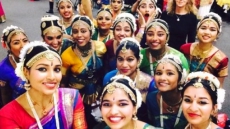The Union Cabinet has given its nod for a Constitutional amendment Bill providing 10 percent more reservation for economically weaker sections in direct recruitment (in Government jobs) and for admission in higher educational institutions.
This will be over and above 50 percent mandated by Constitution and hence the need for Constitution amendment Bill, informed sources said.
Indications are that the Constitutional amendment Bill will get introduced in Lok Sabha on Tuesday.

The proposed amendment Bill will define Economically Weaker Section (EWS) as one having annual income below Rs 8 lakh; agriculture land below 5 acres; residential house below 1,000 sq.ft; residential plot below 100 yards in notified municipality and residential plot below 200 yards in non-notified municipality area. The income includes agricultural income; profession etc.
Rashtriya Swayam Sevaka Sangh (RSS), which is widely known as the BJP's parent organisation, has always maintained that reservation should be along economic lines and not only along caste lines.
Minister of State Ramdas Athawale: "The issue of reservation caused a lot of conflict between Dalits & Savarnas. My demand has always been for 25% reservation for the upper caste poor; 10% is a good start" @IndianExpress
— Shalini Nair (@ShaliniNair13) January 7, 2019
Govt sources: The 10 % reservation is for all those communities/classes that do not come under 50 % quota. It will be for all communities -for the economically backwards among Hindus,Muslims Christians etc.This wont affect the reservation for SCs, STs and OBCs. @IndianExpress
— Liz Mathew (@MathewLiz) January 7, 2019
The 10% will be over and above the existing reservation. “It will not affect the quota for SC/ST/OBCs,” said the source. Constitutional amendment required to make it possible @IndianExpress https://t.co/e3Po2FXZVF
— Liz Mathew (@MathewLiz) January 7, 2019
Prime Minister Narendra Modi told his Cabinet colleagues the decision was “historic” and fulfills the long pending demand of a large section of population that was poor and had no access to reservation benefits. “This is a big social change,” the third minister quoted Modi as saying in the Cabinet meeting.
It comes months ahead of Modi seeking another term as prime minister and plays to the concerns of upper castes. The Modi government faced opposition from upper caste leaders for reversing a Supreme Court order, which diluted provisions such as immediate arrest under the SC/ST atrocities act.

The second minister said that bill will seek to amend articles 15 and 16 of the Constitution that deal with reservation in employment opportunities and educational institutions, both government and private. “A new clause to provide for 10% reservation to the economically backward will be inserted,” the minister said. “Through this, the Modi government is giving constitutional recognition to deprivation and poverty among upper castes.”
The ministers were at pains to point out that the Constitution does not cap reservation.
The upper castes have a significant share in population in northern and central India states such as Rajasthan, Madhya Pradesh, Uttar Pradesh and others. The Jats and Gujjars dominate Haryana, Rajasthan and western Uttar Pradesh.

With Modi, a leader from the backward community, as the prime minister and party’s most prominent face, the BJP reaped benefits of its growing acceptance among the non-Yadav backward communities in Uttar Pradesh, Bihar and others. All this while, the upper castes, the BJP’s traditional voters, remained loyal to the party.
A BJP general secretary said that the party suffered in Chhattisgarh because of a complete shift of OBC votes towards the Congress. “Of late, there was a realisation about a sense of disenchantment among the upper castes too. The Congress’s ability to draw upper caste voters towards itself in Rajasthan and Madhya Pradesh was a worry. We needed to correct this situation,” the first minister said.
Union minister Shiv Pratap Shukla said, “This is not an attempt to placate the upper castes. We are trying to give them their right. We are not doing a favour to them. It is in line with Prime Minister Narendra Modi’s motto of ‘sabka sath, sabka vikas’.”

“Those who do not want to get this bill passed in Parliament may go ahead. We will try to get this bill passed,” he said.
Union minister and Dalit leader Ramdas Athawale, head of the Republican Party of India, a constituent of the NDA, and a Dalit leader, welcomed the move. “The issue of reservation caused a lot of conflict between Dalits and upper castes,” he said, adding that the reservation for upper castes would end friction between them and Dalits. “We expect to pass this with two-thirds majority... other parties should not be opposed to the bill.”
“It is a masterstoke, but many strokes are still pending. Modi is a strong batsman; there will be many sixes and fours,” said Athawale who is the minister of state for social justice and empowerment.

